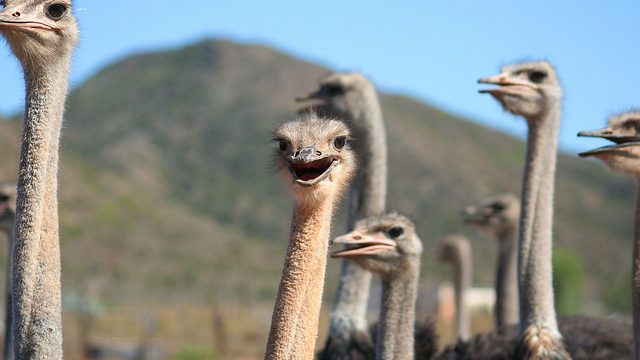You might have seen them on a nature show, on a farm or even running around trying to escape an animal on safari. And after seeing them, you probably just thought they were big funny looking birds and didn’t give them a second thought. Of course, most of us know that they are flightless and huge, but there is definitely more to these birds than meets the eye. It’s time to take your head out of the sand and learn these interesting, lesser-known facts about our planet’s largest birds. Here are some strange and unusual facts you probably didn’t know about ostriches.
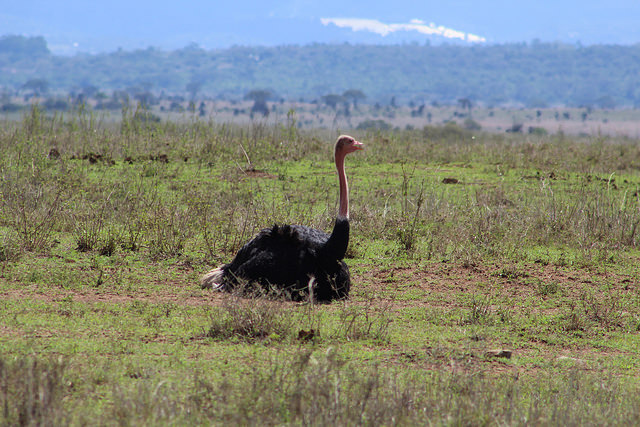
Courtesy of Reedie_Suzanne/Flickr.com Creative Commons 2.0
It’s the males that actually sit on the eggs
We always imagine female birds comfortably sitting on their eggs to warm them up. Not the case with ostriches! Egg sitting is the men’s job while the females do the work of mating and hatching the eggs. The male ostriches will sit on the eggs overnight to keep the eggs from freezing when the temperature drops. Of course, we now know which species deserves the “Father of the Year” award.
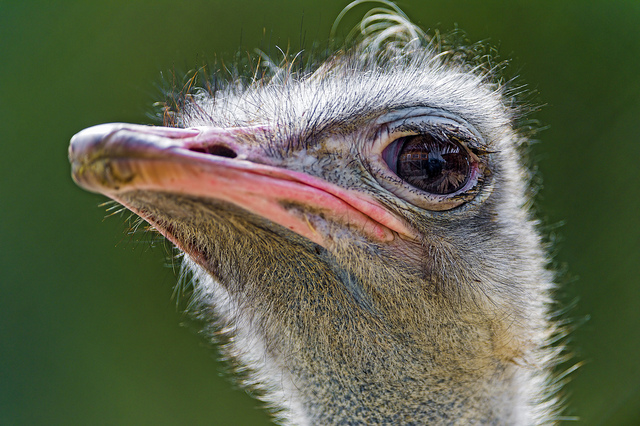
Courtesy of Tambako The Jaguar/Flickr.com Creative Commons 2.0
Their eyes are bigger than their brains
Sadly, they aren’t the most intelligent birds, despite their size. We guess you might have had an idea of that one!The eyes are so large that it dominates a portion of its cranium, and subsequently dwarfs its brain. Also, ostriches have three eyelids (just when you thought their eyes couldn’t’ get any weirder).
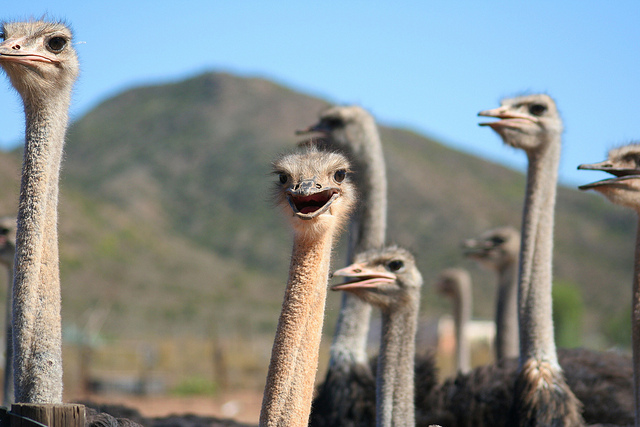
Courtesy of Michael Day/Flickr.com Creative Commons 2.0
They’ve been around forever
Yes, that ostrich is grinning because he know his ancestors date back almost as far back as the dinosaurs. Ostriches have been around for 120 million years, making them the oldest birds that still exist in today’s world. Unless they’re turned into hamburgers, ostriches can live up to 45 years which is also incredibly long for birds.
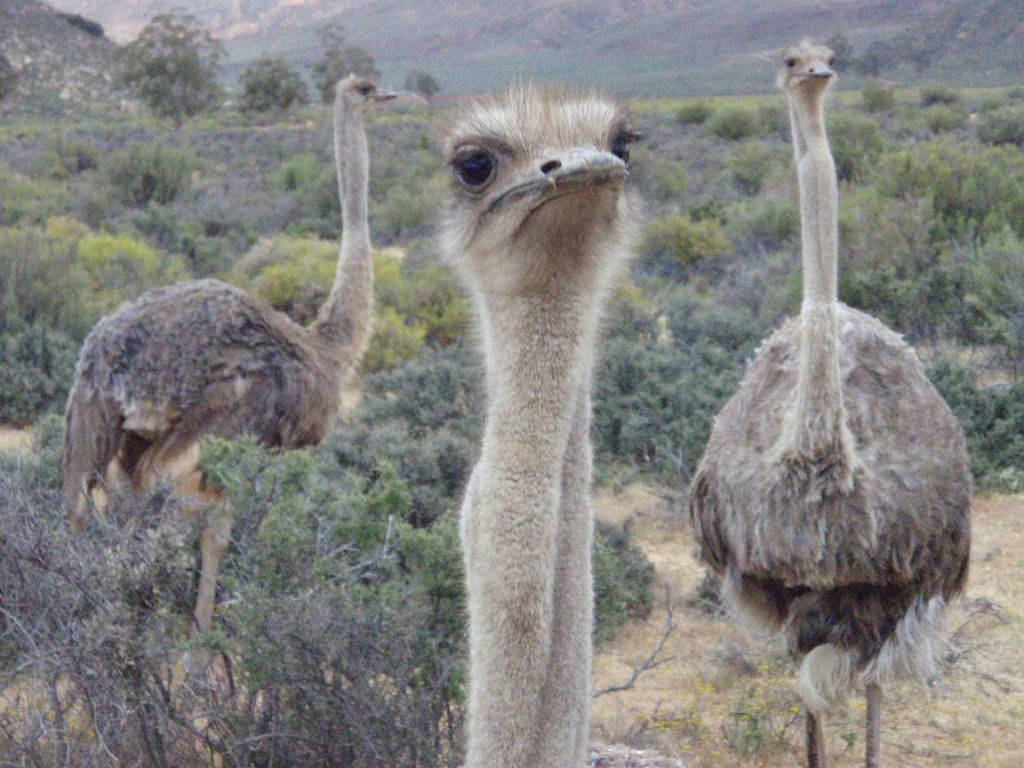
Courtesy of Anthony Patterson/Flickr.com Creative Commons 2.0
Burying their heads in the sand is an outdated myth
We grew up watching cartoons where ostriches buried their heads in the sand when afraid. This reflects the stupidity of the birds to think this would make their enormous size invisible from danger. It’s believed that the myth stems from Pliny the Elder who used them as an example for idiotic thinking. Two thousand years later, the myth still lives on.
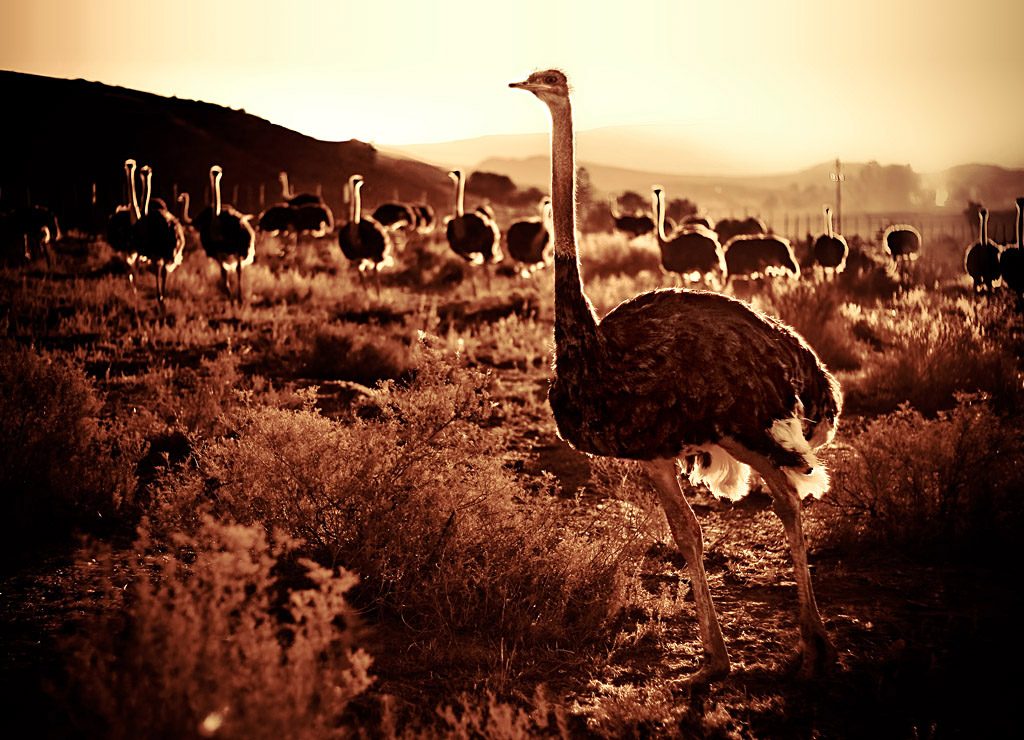
Christiaan Botha/flickr Creative Commons 2.0
They can live an extended life without water
Move out of the way camels. Ostriches have the incredibly ability to absorb water when they eat and this sustains them for long periods of time without having to drink water straight up. This plays a huge advantage for them to beat the heat considering they are flightless and can’t exactly migrate to another country through the air.
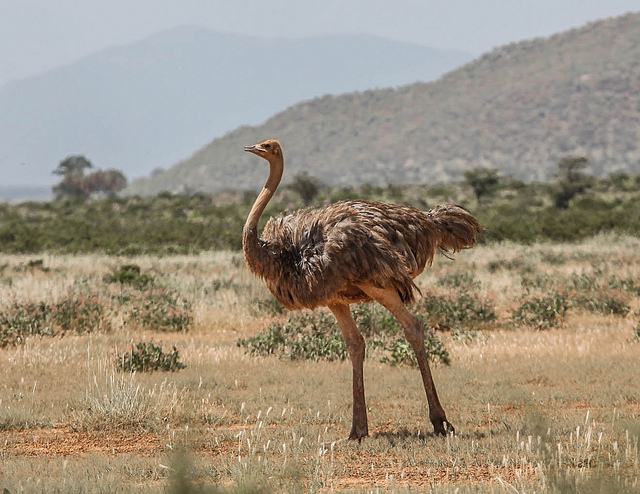
Courtesy of Ninara/Flickr.com Creative Commons 2.0
Dont’ be fooled, they can be lethal when threatened
Think of them as Africa’s equivalent to kangaroos in Australia. When threatened, ostriches will jump and give a powerful kick (have you seen those legs?) and potentially kill their predators. As a result, predators like lions and sometimes humans have died from injuries sustained from the lethal kicks. Beware!
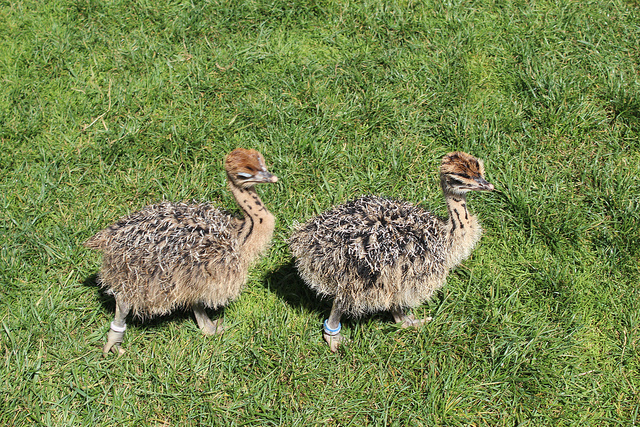
Courtesy of Jeffry/Flickr.com Creative Commons 2.0
Their babies are born with spots
Ostrich chicks aren’t what you’d expect baby ostriches would look like. The adorable young are born with spotty patterns on their necks and heads which eventually fades away as they grow older. A female ostrich typically will lay about 6-10 eggs each gestation but some reports that it’s possible for a female to have as many as 60!
More from AFKTravel:
The 15 Best Wildlife Parks In East Africa
The Incredible Wildlife Of The Zambezi River
Birds Of An Underrated Feather: The Beautiful Pigeons Of Africa
Want to discover the finer side of Africa? Sign up for our weekly newsletter.
